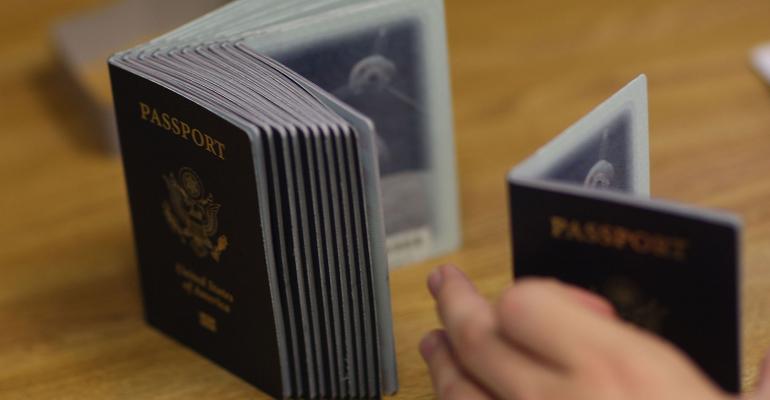As part of the enforcement of a 2015 law passed by Congress, hundreds of thousands of Americans, at least 362,000 to be exact, will be denied new or renewed passports if they don’t settle their outstanding tax debt, the Wall Street Journal reports. The law requires that the Internal Revenue Service and the State Department deny passports to Americans who owe more than $51,000 in unpaid taxes. The amount includes assessed tax, penalties and interest, but it doesn’t include Foreign Bank Account Reporting penalties for failing to report foreign financial accounts. Enforcement of the law started in February.
Notification
The IRS is sending the names of debtors in batches to the State Department and is on track to complete the process by the end of the year. The IRS will simultaneously notify the debtors, in writing, warning them that a passport won’t be issued or renewed until the debt is settled, or a payment plan is set up, and informing them that the State Department also has the right to revoke a passport.
According to the WSJ, an IRS official said that for now, passports are only being denied but not revoked. This means that debtors with current passports are still able to travel abroad unaffected; only those applying for a renewal or a new passport will be denied. The State Department confirmed to the WSJ that it’s already denied passports to some of the affected individuals.
Exceptions
Individuals with timely paid installment agreements or subject to an offer in compromise with the IRS or debts where the collection process has been suspended aren’t affected by the new law. Those who are contesting an assessment administratively or in court also aren’t subject to the passport restrictions.
Other exceptions include victims of identity theft and those claiming “innocent-spouse” relief or who live in a federally declared disaster zone. In addition, the State Department can issue a passport for emergencies or humanitarian reasons, so as to allow an American citizen abroad to return to the United States, says the WSJ.
Enforcement Proving Effective
As far as the effectiveness of the new law, an IRS spokesman told the WSJ that 220 individuals had already handed over $11.5 million to repay their full debts as of late June, with another 1,400 individuals having set up payment plans to reduce their debts.
It seems that at least some of these tax evaders are of the high-net-worth variety. IRS Division Commissioner Mary Beth Murphy revealed to the WSJ that one debtor in particular had paid $1 million in tax debts specifically to avoid passport denial. Also, just yesterday, the Comptroller of Maryland released the names of the top 25 businesses and 20 individuals who collectively owe $12.7 million in unpaid taxes, penalties and interest to the State of Maryland. Number eight on the list is top Baltimore Defense Attorney Warren A. Brown, owing the State more than $250,000.





